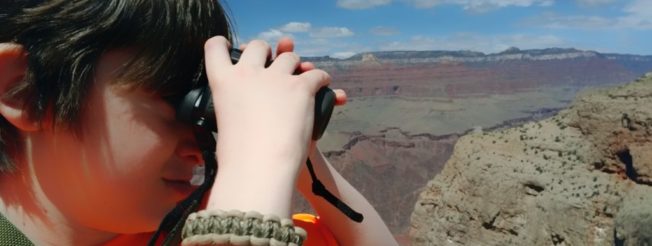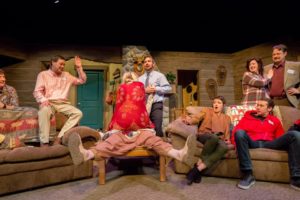
Who Am I as a Leader?
Visions: I see what you did there…
I have experience being a leader in a number of capacities. For years I worked as a manager in a small business with a handful of employees reporting to me. I structured my leadership around clearing obstacles from their path so they could do their best work. Advocating for realistic deadlines from upper management may have been one of the most important things I did. I tried to make sure my employees had a variety of opportunities for professional development and the ability to try different roles that would help them move ahead. I tried to have some kind of review system that included self-reflection. I tried to lead by example – if there was grunt work to be done, I dug in and did it too. Whenever possible, I worked to eliminate “tribal knowledge,” information that lived in people’s heads creating silos and bottlenecks. As such, I documented processes so that others could understand and execute them, demystifying knowledge for both internal and external customers. But if there was work I didn’t know how to do, and my employees did, it was incredibly important for me to let them become experts even I was not and never would be. I feel like this work was sometimes stymied by leadership above me, especially in one key way: we did not have a complete corporate vision statement. I find having a unified vision allows for everyone to know when their best work directly applies. Without one, it can be hard to know if the work being done is its best.
Theater is a passion of mine and I have some leadership experience there. I have directed many shows, mostly for community theaters and schools. Leadership in this environment feels quite a bit different from the corporate world which is driven by profit. In community theater, we’re driven by serving the community and telling stories, an enduring overall mission for nearly every theater group. As a director, it is my job to bring together all the artistic elements of a play or musical such that a performance is ready for opening night and tells the story cohesively. It can be a massive responsibility, and deadlines combined with volunteer artistic egos is a powerful combination (similar to deadlines and egos I experienced in the corporate world).
I feel like I am an effective director and I attribute it to a few leadership strategies I use. The first is having a vision of some kind. For each show I direct I try to have a few unifying statements that will help us address issues as they arise. For example when I directed the 2000 production of ‘Peter Pan’ for Lyric Theatre Company, I used these key ideas: “fun,” “love,” and “close to the ground.” It was part of my vision for the show, and it informed questions about props, costumes, lighting, choreography, set building, special effects, etc. Another strategy I use in theater is listening. Theater is extremely collaborative. As a director I might have ideas about costumes or choreography, but I don’t do them as I have experts that are way better at those things. When working with brilliant artistic minds, hearing them well helps them feel appreciated and enables collaboration. They have to be able to hear my vision, I theirs, and then we make something from it together.
This is all somewhat different from my current role as a brand new teacher and a provisionally licensed Educational Technology Specialist. I am supposedly responsible for leading teachers *and* students *and* faculty in EdTech. I was in the corporate technology world for over 20 years, and have more than 30 years experience in theater, but I haven’t even hit my 100th DAY as an EdTech Specialist. I am expected to occasionally provide professional development to staff, veterans and new teachers alike, yet I feel like everyone around me has infinitely more experience. As the newbie, I just want to be a follower, not a leader, but along with learning the ropes of teaching I must also somehow become a leader among my peers, nearly instantaneously.
Compounding this is the fact that the school I’m in has a brand new administrator and it is her first year as a principal. The admired superintendent for the district, the one with a technology-focused vision, passed away last year (I never met him, but hear of his legacy almost daily), and we have an interim in that role. I mention this because a vision for how the school will move forward feels very much like a work in process and you know how much I like having a vision to work from.
I’m managing this way: I acknowledge when I don’t know things. I look at everything as an opportunity to learn more and improve for next time. I rely heavily on my talented mentors. And I see where I can potentially influence the vision for the future. It feels incredibly powerful, and I take it very seriously.
One final note: I feel like there is never enough time to do all the things I want to do as a leader. But I also feel it is important to acknowledge what did get done, and how it applies to the mission, than to mourn what was missed. Celebrate success, learn from failure. Framing both as positives generates inspiration, and bringing energy and enthusiasm is vital for me as a leader.


